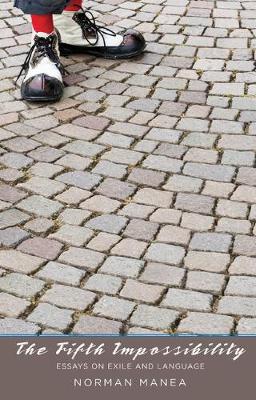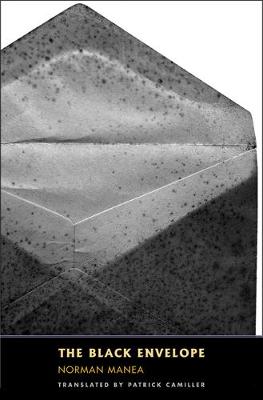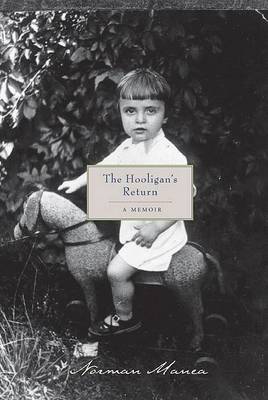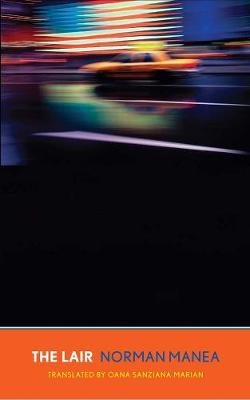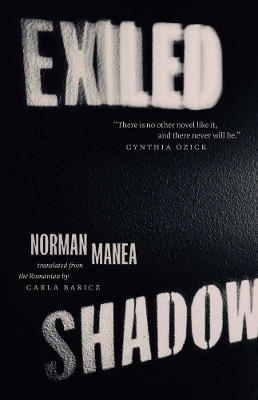Margellos World Republic of Letters
6 total works
Deported to a concentration camp from 1941 until the end of the war, Norman Manea again left his native Romania in 1986 to escape the Ceausescu regime. He now lives in New York. In this selection of essays, he explores the language and psyche of the exiled writer.
Among pieces on the cultural-political landscape of Eastern Europe and on the North America of today, there are astute critiques of fellow Romanian and American writers. Manea answers essential questions on censorship and on linguistic roots. He unravels the relationship of the mother tongue to the difficulties of translation. Above all, he describes what homelessness means for the writer.
These essays-many translated here for the first time-are passionate, lucid, and enriching, conveying a profound perspective on our troubled society.
A splendid, violent spring suddenly grips Bucharest in the 1980s after a brutal winter. Tolea, an eccentric middle-aged intellectual who has been dismissed from his job as a high school teacher on "moral grounds," is investigating his father's death forty years after the fact, and is drawn into a web of suspicion and black humor.
"Reading 'The Black Envelope,' one might think of the poisonous 'black milk' of Celan's 'Death Fugue' or the claustrophobic air of mounting terror in Mr. Appelfeld's 'Badenheim 1939.' . . . Mr. Manea offers striking images and insights into the recent experience of Eastern Europe."-New York Times Book Review
At the center of The Hooligan's Return is the author himself, always an outcast, on a bleak lifelong journey through Nazism and communism to exile in America. But while Norman Manea's book is in many ways a memoir, it is also a deeply imaginative work, traversing time and place, life and literature, dream and reality, past and present. Autobiographical events merge with historic elements, always connecting the individual with the collective destiny. Manea speaks of the bloodiest time of the twentieth century and of the emergence afterward of a global, competitive, and sometimes cynical modern society. Both a harrowing memoir and an ambitious epic project, The Hooligan's Return achieves a subtle internal harmony as anxiety evolves into a delicate irony and a burlesque fantasy. Beautifully written and brilliantly conceived, this is the work of a writer with an acute understanding of the vast human potential for both evil and kindness, obedience and integrity.
Now available for the first time in English, Manea's acclaimed novel of émigrés in America, free yet imprisoned by the past
Norman Manea, Romania's most famous contemporary author, twice has survived the grip of totalitarian regimes. No stranger to exile, he mines its complexities and disorientations in this extraordinarily compelling novel, The Lair. Exile in the motherland and away from it is the shared plight of his protagonists. Nowhere at home, they move through their lives in a continuous, ever-elusive quest for national and individual identity. Manea's characters seek a place and a voice in America, only to discover that the shackles of their native totalitarian and nationalist ideologies are impossible to break.
Manea's themes and narrative approach are intricate: his style fluctuates in correspondence with the instability of his characters' lives, his story is encased within an elaborate network of allusions and paradoxes. Yet in the midst of the novel's overriding disorientation, the author establishes intersections and uncovers the universal. Through the predicaments of his perpetual outsiders, he offers a poignant assessment of the conflicts of the individual in the age of globalization. He writes with unmatched intensity and a unique sensitivity to the human tragicomedy.
“One of the most eloquent living witnesses of the European 20th century, Norman Manea, at 87, has brought out Exiled Shadow, a contemplative work of fiction . . . [in] a strong, clarion translation into English by Carla Baricz. . . . A fitting summarization of a rich and deeply honorable career.”—Sam Sacks, Wall Street Journal
“Exiled Shadow belongs among the great, intricate, and uncompromising works of contemporary literature.”—Jan Knoffeke, Neue Zürcher Zeitung (Switzerland)
In this vibrant mosaic of voices, sources, and stories, the protagonist, known only as the Nomadic Misanthrope, leaves communist Romania and is reunited with his friend Gunther, an unrepentant Marxist exiled in Berlin. Their meeting sparks a spirited dialogue that endures throughout the Nomadic Misanthrope’s subsequent decades in the United States. At the center of the plot is the figure of the shadow—the insubstantial shape of the exile, the wandering Jew, the death camp survivor, the individual under totalitarianism, the dark side of the Jungian personality—a figure that calls into question the boundaries of the human condition.
Recalling the beloved nineteenth-century German tale of Peter Schlemihl, the man who sold his shadow for a bag of gold, this is Norman Manea’s most daring work yet: an intimate record of alienation and endurance.
